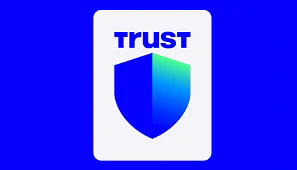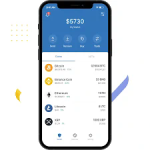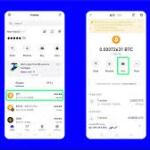# Can You Trade on Trust Wallet?
## Introduction to Trust Wallet
Trust Wallet is a decentralized mobile wallet designed specifically for the storage, management, and exchange of cryptocurrencies. Initially launched in 2017, it was acquired by Binance in 2018, which further bolstered its development and user base. As users increasingly seek more control over their crypto assets, decentralized wallets like Trust Wallet have gained considerable traction.
Trust Wallet supports a plethora of cryptocurrencies, including popular assets like Bitcoin (BTC), Ethereum (ETH), and various tokens based on the ERC-20, TRC-20, BEP-2, and BEP-20 standards. One of its standout features is its built-in decentralized exchange (DEX) functionality, allowing users to trade assets directly from the wallet without relying on centralized exchanges.
## Core Features of Trust Wallet
### User-Friendly Interface
One of the primary reasons for Trust Wallet’s popularity is its user-friendly interface. The app is designed for both novice and experienced traders, making it accessible to a wide audience. The wallet organizes assets clearly, allowing users to easily navigate through their holdings. The application’s simplicity does not compromise functionality; users can access advanced features like DApp browsers and staking options.
### Decentralized Exchange (DEX) Integration
Trust Wallet enables users to trade cryptocurrencies via its DEX integration. This feature allows for peer-to-peer transactions without the need for intermediaries. By utilizing automated market makers (AMMs) and liquidity pools, the wallet facilitates seamless trades across various tokens. Users can swap tokens directly in the wallet interface, enhancing convenience and efficiency.
### Enhanced Security Features
Security is a significant concern for cryptocurrency users, and Trust Wallet addresses this by ensuring private keys are stored locally on the user’s device. Unlike exchanges, which hold users’ funds in centralized wallets, Trust Wallet empowers users with full control over their assets. The app also features biometric authentication and passphrase protection, adding another layer of security.
### Multi-Currency Support
Trust Wallet supports a vast array of cryptocurrencies and tokens. This multi-currency capability allows traders to manage different assets from a single platform easily. Users can access both major cryptocurrencies and a variety of altcoins, broadening their trading opportunities.
## Understanding Trading on Trust Wallet
### Setting Up Your Trust Wallet
Before trading on Trust Wallet, users must download the application from the Google Play Store or Apple App Store. Once installed, users can create a new wallet or import an existing one using a recovery phrase. It is crucial to store this phrase securely, as it is the only way to recover funds in case of device loss or corruption.
After setting up the wallet, users can deposit funds by receiving assets directly to their wallet address. Trust Wallet generates unique addresses for different cryptocurrencies, allowing seamless deposits from various sources.
### Executing Trades

To trade on Trust Wallet, users can leverage the built-in DEX feature, which lists various trading pairs. Here’s a step-by-step guide to executing a trade:
1. **Select the DEX Option**: Open Trust Wallet and navigate to the DEX tab, where users can view available trading pairs.
2. **Choose Tokens to Trade**: Select the tokens for which you want to execute a swap. The wallet displays real-time market prices based on liquidity.
3. **Adjust Trade Settings**: Users can customize slippage tolerance, which is crucial in fluctuating markets. Setting an appropriate slippage ensures the trade executes even if price variations occur.
4. **Confirm the Transaction**: After reviewing the trade details, users can proceed to confirm the transaction. The wallet will prompt the user to authorize the trade, which is then processed on the blockchain.
5. **Receive Tokens**: Once the trade is confirmed, the new tokens will appear in the user’s wallet after network confirmations, which can vary depending on the blockchain.
## Advantages of Trading on Trust Wallet
### Decentralization and Control
Trading on Trust Wallet epitomizes the decentralized ethos of cryptocurrency. Users maintain full control over their private keys and funds, reducing reliance on centralized entities. This decentralization also minimizes the associated risks, such as hacks or operational failures common to centralized exchanges.
### Lower Transaction Fees
Decentralized exchanges usually offer lower fees compared to their centralized counterparts. Trust Wallet takes advantage of this by minimizing the fees involved in token swaps, although users must still consider the gas fees associated with transactions on the underlying blockchain network.
### A Comprehensive Ecosystem
Trust Wallet integrates various decentralized applications (DApps), including DEXs, NFT platforms, and more, creating a comprehensive ecosystem. Users can trade, stake, and participate in DeFi directly from their wallet, offering a seamless and interconnected experience.
### Privacy and Anonymity
Trading on Trust Wallet offers enhanced privacy. Since it is not tied to user identities or registrations, traders can engage in swaps and transactions without disclosing personal information. This feature is particularly appealing to those concerned about privacy issues.
## Challenges of Trading on Trust Wallet
### Volatility and Market Risks
The cryptocurrency market is notoriously volatile, and while Trust Wallet provides a platform for trading, users are still exposed to significant price fluctuations. Understanding market dynamics and price movements is essential for mitigating risks and making informed trading decisions.
### Learning Curve for New Users
While the user interface is straightforward, new traders may face challenges understanding the mechanics of decentralized exchanges and token swaps. Concepts like slippage, liquidity, and gas fees may be daunting initially. Educational resources, including tutorials and community forums, can aid users in navigating the complexities of trading.
### Limited Advanced Trading Features
Compared to centralized exchanges, Trust Wallet may lack advanced trading features such as margin trading, limit orders, or futures trading. This limitation could deter active traders seeking more sophisticated trading strategies and tools.
## Security Considerations
### Protecting Your Private Keys
As with any cryptocurrency wallet, the security of Trust Wallet relies heavily on how well users protect their private keys. It is crucial to never share recovery phrases and to use strong passwords for added protection. Security practices also include keeping the mobile device updated and using antivirus software to safeguard against malware.
### Recognizing Phishing Attempts
Phishing remains a prevalent threat in the cryptocurrency space. Users must remain vigilant for suspicious links and messages claiming to be from Trust Wallet or associated services. Always accessing the wallet through official app stores or the Trust Wallet website can help mitigate these threats.
## Conclusion: Is Trading on Trust Wallet Worth It?
Trading on Trust Wallet presents numerous advantages, particularly for those who value decentralization, security, and control over their assets. Its user-friendly design and extensive cryptocurrency support make it an appealing option for both novice and experienced traders. However, potential users must also navigate the challenges associated with decentralized trading, including market volatility and the learning curve for inexperienced traders.
Ultimately, whether trading on Trust Wallet is worth it depends on individual preferences and trading strategies. As the cryptocurrency landscape continues to evolve, Trust Wallet positions itself as a versatile and secure platform for trading and managing digital assets, catering to the growing demand for decentralized solutions in the financial ecosystem. As always, users should conduct thorough research and remain aware of the risks involved in cryptocurrency trading.


